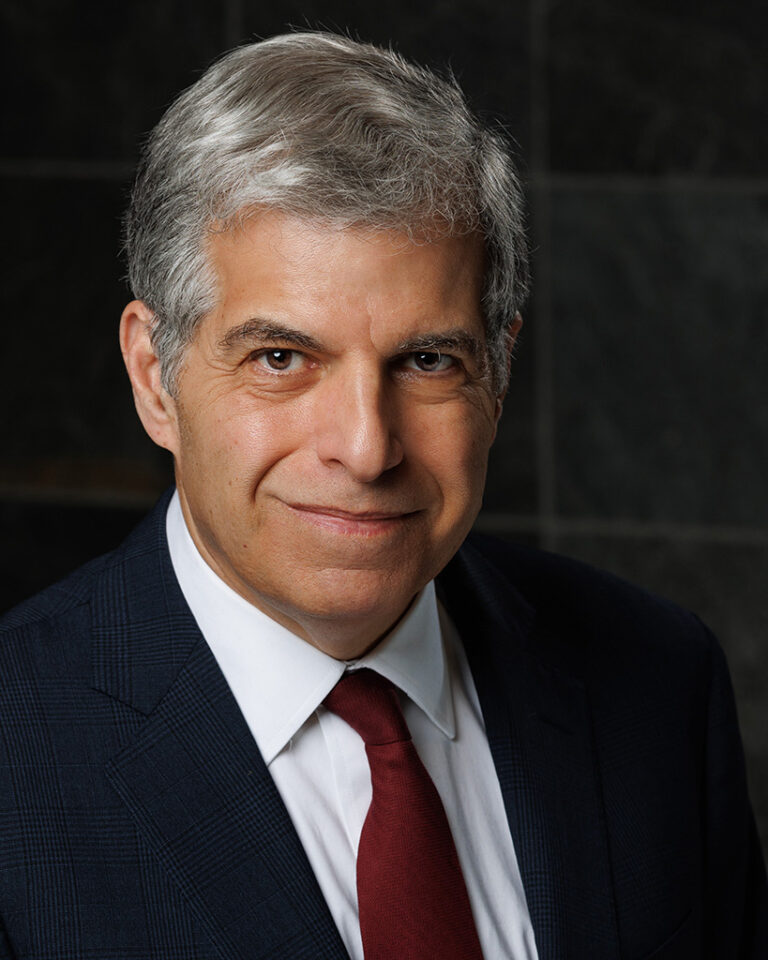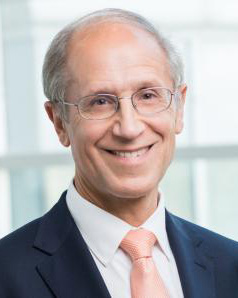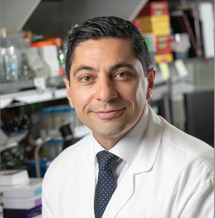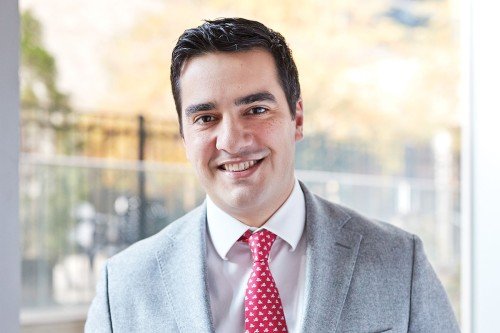The Jedi Rare Cancer Foundation partners with leading rare cancer researchers and other leaders in academia, philanthropy, patient advocacy, and government to empower innovation and accelerate discovery in rare cancer research that translates into lifesaving treatments and better outcomes for rare cancer patients, their families, and the world. Today, we are actively leading a movement dedicated to uniting the entire rare cancer community at unprecedented scale to accelerate research, treatment, and cures for all rare cancers, the hidden unmet need in our modern era.

Alliance for Rare Cancers (ARC)
The newly formed Alliance for Rare Cancers (ARC) launched in 2024 with the mission to unite the entire rare cancer community at unprecedented scale to accelerate cures for all rare cancers. The Jedi Rare Cancer Foundation is proud to join with key opinion leaders from leading cancer centers and organizations in founding ARC with a common vision that every rare cancer patient deserves access to the latest advances in cancer.
We envision a world where every patient diagnosed with any cancer will quickly have access to a data-driven, clinically proven approach to treatment. The promise of data-driven cancer therapies has engendered hope that, at the time of diagnosis, tl1e molecular profile of a patient's tumor will reliably reveal a tumor's vulnerabilities and guide a patient's options for treatment. Data-driven therapy can and should be available for every rare cancer patient, no matter where they live and no matter how rare their specific cancer diagnosis.
Rare cancers account for more than 25% of all cancers each year, and there is increasing recognition that a national strategy is required in the United States to overcome the obstacles that have traditionally resulted in a lack of funding for rare cancer research and progress for rare cancer patients.
Leaders from across medical institutions. major research labs, and large patient-focused research organizations have signaled they are ready to commit to radical rare cancer collaboration and make data-driven approaches in rare cancer a reality. Our number only continues to grow. As we share our vision, additional key players have joined our "coalition of the willing," donating their time and offering to commit resources to this endeavor.

CURE: The Rare Cancer Initiative
CURE (Conducting Unprecedented Research and Exploration) is a major rare cancer research initiative that will help END rare cancer as we know it. A new initiative of the Case Western Reserve University Comprehensive Cancer Center (Case CCC) under Director Dr. Gary Schwartz, CURE’s groundbreaking science is built on the understanding that tumors are complex ecosystems composed of not only cancer cells, but also “healthy” cells that can be co-opted by cancer to fuel its growth, or immune cells that actively attempt to kill cancer cells.
The Jedi Rare Cancer Foundation has anchored the launch phase of CURE with a $5 million commitment over five years alongside the University’s commitment to raise the balance of the projected $12 million initiative at Case CCC. Additional philanthropic support is critical for transforming CURE from concept to reality and collecting vitally important early-stage research results that will position it for large-scale funding from the National Institutes of Health, National Cancer Institute, and more, which will accelerate our progress toward the ultimate shared goal of lifesaving cures.

Dr. Schwartz’s vision is to establish highly innovative, transformative clinical translational research programs in the field of cancer therapy. Formerly Chief of Hematology and Oncology at Columbia University Irving Medical Center (CUIMC) and Deputy Director of the Herbert Irving Comprehensive Cancer Center, his post at Case CCC follows 30 years of extensive work in early drug development with bench-top to bedside research in gastrointestinal cancers, melanoma, and sarcoma. As the former Chief of the Melanoma and Sarcoma Service at Memorial Sloan-Kettering Cancer Center (MSKCC), Dr. Schwartz successfully brought together clinical researchers and basic scientists to establish a highly successful clinical research program that focused on translational clinical trials with small molecule inhibitors and targeted immunologic agents. His efforts at Columbia similarly focused on precision medicine. More recently, he has developed novel therapies for rare cancers, especially sarcoma and uveal melanoma. As co-chair of the Experimental Therapeutics and Rare Tumor Committee on the Alliance, Dr. Schwartz has also developed new therapeutics trials for patients with rare cancers, ranging from rare forms of thyroid cancer to sarcoma.

Dr. Gerson has distinguished himself in a number of realms, including his research in DNA repair and stem cell therapy, which has resulted in numerous publications and patents. Three of his discoveries are in clinical trials as new cancer therapies. He is also the co-editor of the internationally recognized textbook, "Gene Therapy of Cancer Translational Approaches from Preclinical Studies to Clinical Implementation 3" (Elsevier Limited, Oxford, United Kingdom) and the textbook "Clinical Hematology." Dr. Gerson is foremost, a mentor and educator for the next generation of compassionate cancer research scientists and clinicians. In 2012, he was the recipient of the Case Western Reserve Medal for Excellence in Health Science Innovation, the highest honor bestowed by the School of Medicine to those advancing research, education and health care. In his stem cell research, he developed mesenchymal stem cells as a therapeutic infusion for blood stem cell transplantation and for the correction of genetic disorders. He identified a gene therapy strategy method that creates drug-resistant stem cells capable of selectively repopulating the recipient without the need for high dose toxic therapy. This strategy is now used experimentally and clinically throughout the country. In the area of DNA repair, he developed inhibitors of DNA repair to improve the efficacy of anti-cancer agents. Both are currently in clinical trials. His research has generated 12 patents in the area of gene therapy and cancer drug development that have been licensed to three companies.

Rare Cancer Conference
On April 26, 2022, the Jedi Rare Cancer Foundation and Columbia University Herbert Irving Medical Center co-sponsored the Rare Cancers: Unmet Medical Needs conference to highlight the scarce resources and treatment options available to the more than 400,000 Americans diagnosed with a rare cancer each year – and to the major advancements in medical science stemming from the ability to study the genomics of every molecule in tumor tissues. At our foundation’s October 2022 Annual Dinner, honorary co-chair Tiffany Taxel thanked our generous donor community and presented $100,000 to Dr. Benjamin Izar of the Columbia University Herbert Irving Comprehensive Cancer Center. The 2024 study recently published in Clinical Cancer Research, “Single-cell profiling of sarcomas from archival tissue reveals programs associated with resistance to immune checkpoint blockade,” by Columbia University medical scientists, with corresponding author Dr. Izar, Columbia Vagelos College of Physicians and Surgeons, was supported by our $100,000 donation in 2022.

Dr. Izar’s clinical practice focuses on melanoma and cancer immunotherapy. In his lab, Dr. Izar studies the intersection of cancer immunology, tumor genomics, and metastatic organotropism. These factors dictate clinical drug responses/resistance to existing and investigational targeted and immune-based therapies; his laboratory has published several landmark studies in this field. Dr. Izar has an active clinical practice focusing on treating patients with melanoma, and, as member of the early drug development program, other solid tumors. He is the PI on immunotherapy trials in this space and holds several patents pertaining to the development of novel cancer therapies.

Cycle for Survival
As the official rare cancer fundraising program of Memorial Sloan Kettering Cancer Center (MSK), Cycle for Survival fuels hope and progress with every dollar raised. Since 2022, the Jedi Rare Cancer Foundation has fielded a JEDIs for Survival national team to raise funds for the annual Cycle for Survival fundraiser that supports rare cancer research at MSK. Since 2007, Cycle for Survival has raised more than $342 million dollars for MSK rare cancer research programs. Our foundation matches the first $10,000 raised by each of our regional cycle teams, and within six months after the close of Cycle for Survival fundraising each year, our donations are directed to the work of Pediatric Oncologist Dr. Micheal Ortiz, MSK Kids, Memorial Sloan Kettering Cancer Center, fueling bold ideas and breakthroughs in rare cancer.

Dr. Ortiz specializes in caring for children and young adults with tumors of the liver and kidney, with particular expertise in treating pediatric kidney cancers such as Wilms’ tumor and rhabdoid tumor, pediatric liver cancers such as hepatoblastoma and fibrolamellar carcinoma, and pediatric sarcomas. In addition to caring for his patients at MSK Kids, Dr. Ortiz conducts research focused on translating basic scientific discoveries from the laboratory into safer and more effective treatments for children and young adults with challenging solid tumors. His lab investigates how these cancers become resistant to standard treatments, screens new drugs in laboratory models of childhood cancers, and identifies markers to predict which patients would benefit from these additional therapies. Ultimately through this research, he hopes to move the most promising treatments from the lab into the clinic to help patients with cancers that have become resistant to standard therapies.

2024 Honoree | Jedi Award
Agents of Change
The Rare Cancer Research Foundation (RCRF) is a 501(c)3 dedicated is dedicated to building the infrastructure to accelerate rare cancer research and save lives. Since 2014, founder Mark Laabs and his team have worked tirelessly with patients, researchers, medical institutions, and patient advocacy foundations to lead a collective mission to find a cure for rare cancers.
Since our foundation’s inception, the Jedi Rare Cancer Foundation and RCRF have partnered to promote rare cancer awareness and advocacy. They are founding members with our foundation in the newly formed Alliance for Rare Cancers (ARC) and valued partners and collaborators in CURE: The Rare Cancer Initiative at Case Comprehensive Cancer Center.
RCRF’s Pattern.org initiative is also a crucial part of CURE’s national collaboration as a provider of tumor samples and associated clinical data. Their indication-agnostic approach allows them to build scale and efficiencies across cancer communities and act as a force multiplier in the search for a cure. “We seek to philosophically align only with rare cancer researchers and institutions who agree to share their learning for the greater good,” emphasizes Pattern.org President and RCRF Board Member Barbara Van Hare. Following this philosophy, researchers who receive tissue through Pattern.org agree to place any resulting models, along with any associated de-identified clinical, sequencing, CRISPR, and other data into the public domain, helping researchers worldwide accelerate their scientific research. To see how research models are generated from patient samples, click here.

